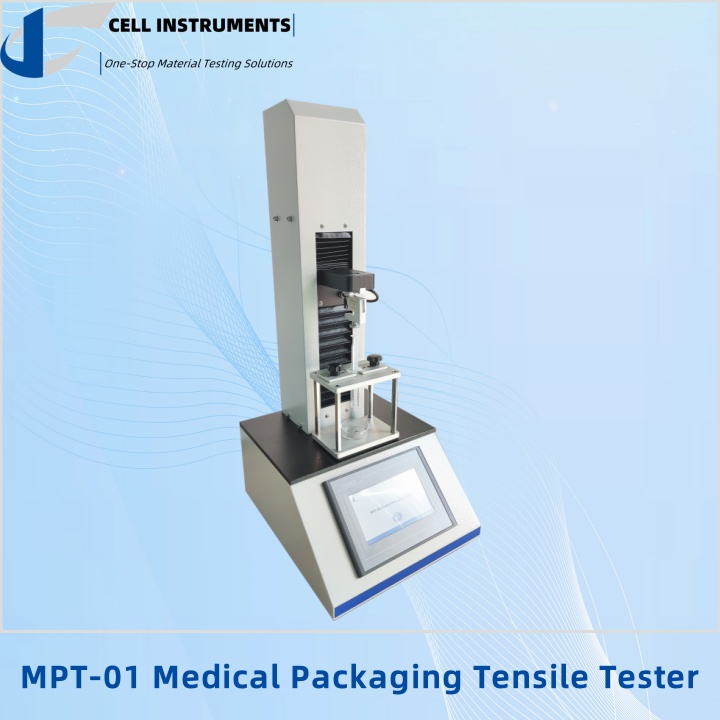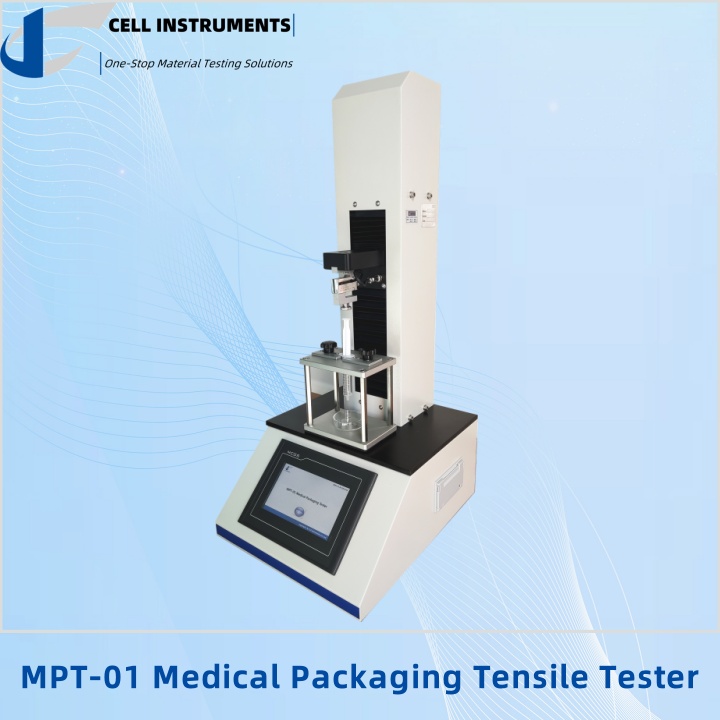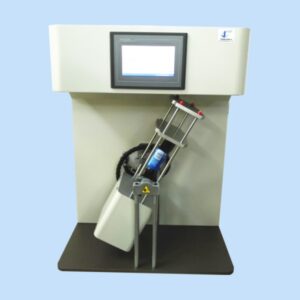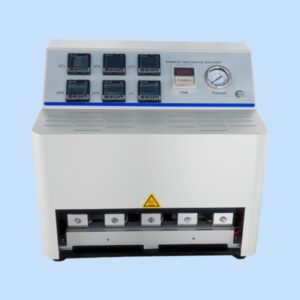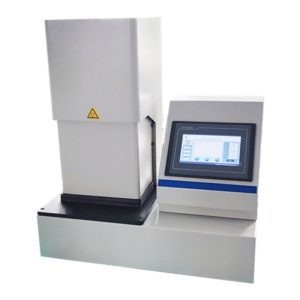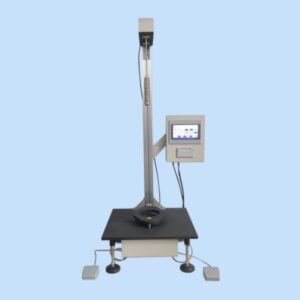MPT-01 Medical Packaging Tensile Tester
- Manufacturer: Cell Instruments
- Applications: Packaging materials, medical device materials, pharmaceutical testing, paper and cardboard containers, and more.
- Customization: Available for special testing requirements and automation transformations
I. Introduction to Medical Packaging Tensile Tester
The Medical Packaging Tensile Tester is an essential tool in the medical industry, designed to test the mechanical properties of packaging materials used for medical devices and pharmaceutical products. Ensuring the durability and safety of medical packaging is critical for protecting patient health and complying with stringent regulatory standards. This versatile testing instrument allows manufacturers to perform a wide range of tests, including tensile, compression, tear, opening force, penetration, breaking strength, and pull tests. By assessing these key properties, companies can ensure that their packaging meets the necessary performance criteria for medical applications.
II. Key Applications of Medical Packaging Tensile Tester
The Medical Packaging Tensile Tester can evaluate various packaging materials, such as polymers, rubber stoppers, ampoules, plastic containers, and syringes. It is designed to assess the mechanical strength, resistance, and integrity of these materials to ensure their suitability for medical use.
Types of Tests Conducted
- Tensile Test: Measures the material’s ability to withstand tension and stretching forces, which is crucial for ensuring the packaging can resist tearing during handling or transport.
- Compression Test: Determines how much compression the packaging can endure before failure, vital for protecting the contents of packages such as syringes or vials.
- Tear Test: Evaluates the tear resistance of flexible medical packaging, such as pouches and bags, to ensure they do not easily rip open during normal usage.
- Opening Force Test: Tests the force required to open the packaging, which is critical for user-friendly designs that maintain sterility but are easy to access.
- Penetration Test: Assesses the resistance of packaging materials to puncture, ensuring safety in products such as antibiotic bottle stoppers and hypodermic needles.
- Breaking Strength Test: Ensures the structural integrity of ampoule bottles, checking their ability to resist breakage during storage or transport.
- Sliding Resistance Test: Measures the smoothness of syringe pistons, ensuring accurate dosage administration and user safety.
These various tests help ensure that the medical packaging used for devices and pharmaceutical products meets performance and safety standards, protecting the health of patients and maintaining product efficacy.
III. Test Process and Significance
The testing process using the Medical Packaging Tensile Tester is straightforward but highly precise, ensuring accurate results. Here’s a step-by-step outline of the testing process:
- Preparation of the Material: The material sample, such as a polymer film or rubber stopper, is securely mounted onto the tester using specialized clamps.
- Test Selection: The appropriate test method is selected, depending on the property being evaluated—whether it is tensile strength, tear resistance, or compression.
- Test Execution: The tester applies the specified force or movement (e.g., pulling or compressing) to the material at a controlled rate. The programmable logic controller (PLC) ensures precise control over the speed and force applied during the test.
- Data Collection: The tester measures the material’s response, such as how much force is required to tear it or how much compression it can withstand before failure.
- Result Interpretation: The results are displayed on the Human-Machine Interface (HMI) touchscreen or outputted through a microprinter or RS232 port (if equipped). These results provide critical insights into the material’s performance and whether it meets regulatory and product safety standards.
Significance of the Test
Testing the mechanical properties of medical packaging is vital to ensure that these materials can protect their contents from contamination, physical damage, and environmental exposure. Medical products often undergo transportation, storage, and sterilization processes, all of which could compromise the integrity of their packaging if the materials are not strong enough.
The Medical Packaging Tensile Tester helps manufacturers maintain high standards of quality and safety, ensuring that the packaging materials perform as expected. This is not only important for product integrity but also for compliance with international standards and regulations that safeguard public health.
IV. Versatility and Customization
One of the standout features of the Medical Packaging Tensile Tester is its versatility. It can be adapted to perform various tests by utilizing different clamps and fixtures designed for specific applications. Whether it’s testing the tensile strength of plastic packaging or the compression resistance of rubber stoppers, the tester can accommodate a wide range of materials and test configurations.
Customization Options
- Adjustable Test Speeds: The tester’s speed can be varied between 1 to 500mm/min, making it suitable for different test types.
- Dual Direction Testing: The device can perform both tensile and compression tests with precise movement in both directions.
- Clamps on Demand: Clamps can be customized to fit unique testing requirements, ensuring accurate testing results for any specific material or package design.
- Output and Data Collection: Equipped with a microprinter and an optional RS232 port, the tester allows for seamless data collection and reporting.
V. Technical Features
| Test Range | 500N (or as required) |
| Stroke | 200mm (without clamp) |
| Test Speed | 1~500mm/min |
| Displacement Accuracy | 0.01mm |
| Accuracy | 0.5% F.S. |
| Control | PLC and human machine interface |
| Output | Screen, Microprinter, RS232(optional) |
| Power | 110~220V |
FAQs
What types of materials can be tested with the Medical Packaging Tensile Tester?
The tester can assess a wide variety of materials, including polymers, rubber stoppers, ampoules, syringes, and other medical packaging materials.What is the importance of tensile testing in medical packaging?
Tensile testing is crucial for ensuring that the packaging material can withstand pulling forces without tearing, which helps maintain product integrity during transport and use.Can the tester be customized for specific testing needs?
Yes, the tester can be equipped with custom clamps and programmable test parameters to accommodate unique testing requirements.What standards does the Medical Packaging Tensile Tester comply with?
It complies with important industry standards such as ISO 11607, ASTM F88, ASTM D882, ASTM D1894, and ASTM F1140, ensuring regulatory compliance for medical packaging.How is test data recorded and analyzed?
Test results can be displayed on the tester’s touchscreen, printed through the built-in microprinter, or exported via the RS232 port for further analysis.


